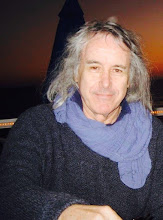In the second half of the 60s, I was constantly looking for reasons to
take road trips. This habit began when I acquired a 3.8-litre, Series 1
E-Type Jaguar coupe--probably one of the most beautiful cars ever
made--and carried on through my ownership of two other magnificent cars,
the Ferrari Berlinetta Lusso and the Ferrari GTO. On one particular
occasion, I drove the Lusso to Tuscon, Arizona where my friend and
mentor Paul Stanley was directing an episode of the television series
The High Chaparral.
The
show was a western drama starring Leif Erickson and Cameron Mitchell
created by David Dortort, who had created the hit series
Bonanza
also for NBC. It was filmed at Old Tucson Studios, a movie studio and
theme park that put on the sort of western shows one would see at
Knott's Berry Farm when production companies weren't filming.
They
say that getting there is half the fun and when the vehicle is a
Berlinetta Lusso, one could accept that claim as understatement. No
other engine sounds like a Ferrari V12 and the long stretches of road
between Los Angeles and Tuscon made for a wonderful opportunity to enjoy
the Ferrari's uninterrupted song at high revs for such prolonged periods of
time. I especially liked the way the tightly sprung suspension caused the fenders to bob as
the Lusso consumed the pavement in front of it traveling at twice the
speed of other cars on the road. When I would stop to fill the tank at a
service station, I had the same curious feeling I would get after
spending time on my sailboat--that of still traveling at speed the way I
could still feel the rocking of the boat long after I had come ashore.
I enjoyed watching Paul shoot as he was always well prepared ("Preparation, preparation, preparation!" Don Logan,
Sexy Beast)
and knew what he wanted. He seemed to enjoy good relations with his
actors and crew though I noticed he was not averse to showing his
displeasure in a manner that brought things quickly back to how they
should be when it was merited.
One day on the set, I was having
lunch with Cameron Mitchell and Harry Dean Stanton (who was guest
starring on the episode) at a table set up by craft services on the
western street. They were both in their western costumes and the subject
turned to Zen. It seemed Cameron had become interested in the subject
and I had the impression that Harry Dean was familiar with the teachings
of Zen as well. In explaining Zen to me, Cameron picked up a pack of
cigarettes and threw it onto the table. "That's Zen," he said.
Whether
Cameron's was the most Zen-like explanation of Zen ever given or merely
a hint of what he understood Zen to be didn't matter. His explanation
stuck with me as a reference and how many things said to you can you
recall with vivid clarity after forty-seven years?
On the way home, I found my own Zen at 7,000 r.p.m.



No comments:
Post a Comment